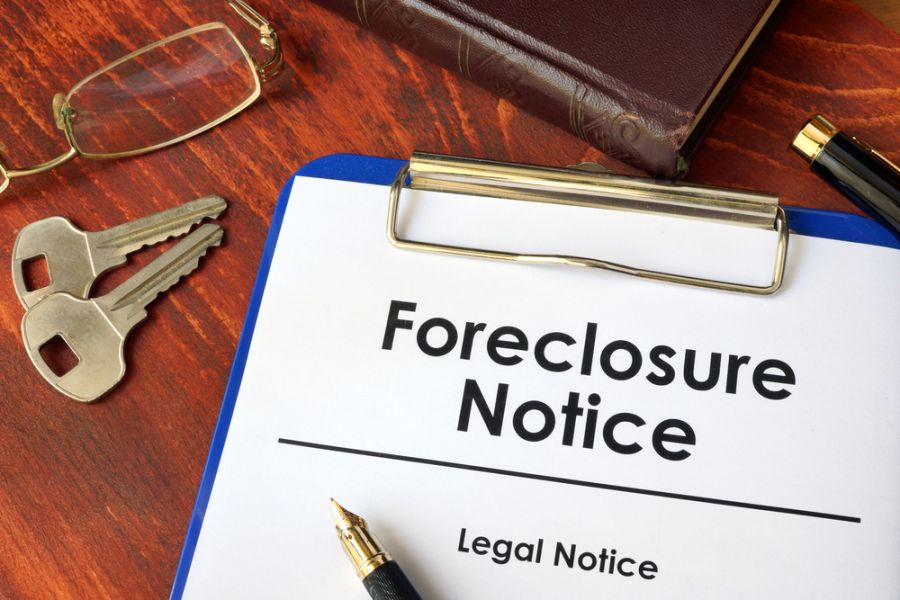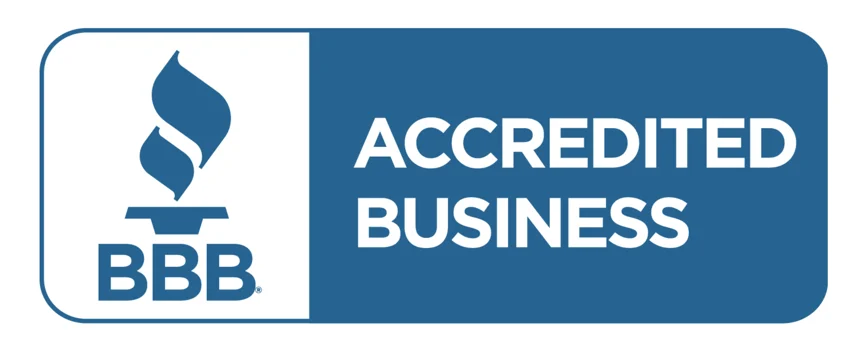Sell Your House in Foreclosure
Get Your Free Cash Offer
We purchase homes in any condition, as-is — no repairs or cleanup necessary. If you’re not able to put the work or money into fixing mold and water damage, we’ll buy your home and take the trouble off your hands. Call 616-379-3077 or fill out the form for your free cash offer.
What to Know About Michigan Foreclosure
Foreclosure is the legal process by which a homeowner forfeits the rights to their property because they’re unable to fulfill their repayment obligations. If you’ve found yourself in this situation due to unforeseen circumstances, we’re here to help. Below, we break down important information to know about foreclosure, as well as some steps you can take to avoid it.
Two Types of Foreclosure
There are two main types of foreclosure: mortgage foreclosure and tax-delinquent foreclosure.
- Mortgage foreclosure occurs when a homeowner is unable to make mortgage payments on time.
- Tax-delinquent foreclosure occurs when a homeowner is unable to make property tax payments on time.
While the causes of these two types of foreclosure are different, they can both have similar, long-lasting consequences on your future.


Consequences of Foreclosure
If you’re experiencing financial hardship and are unable to make your mortgage or property tax payments on time, you need to act quickly. Foreclosure can have serious consequences on your financial, legal, and personal life. Some examples of the consequences of foreclosure include:
- Losing your home, saying goodbye to part of your family history, and having to find new living arrangements.
- Damaging your credit score by up to 150 points.
- Struggling to get approved for another mortgage because of your damaged credit score.
- Experiencing a lot of personal and relational stress due to uncertainty.
None of these consequences are easy to deal with. But by persevering, doing your research, and learning about your options, you can avoid them.
The Michigan Foreclosure Process
One of the best ways to figure out how to avoid foreclosure is to do your research on what the foreclosure process is like. In Michigan, foreclosure doesn’t just happen the second you miss a payment. Instead, it’s a fairly lengthy process that gives you some time to make a helpful decision that will get you back on your feet.
Below are two outlines of the Michigan foreclosure process, depending on which type of foreclosure you’re experiencing.
The Michigan mortgage foreclosure process usually takes about a year. You can read more details on the State of Michigan’s website, but here’s the general timeline of events:
- Day 2: Your mortgage payment is due on the same day of every month. If your payment is not made on this date, it’s considered late on Day 2.
- Day 2-36: You’ll be charged late fees for your missed payment deadline. Your lender must make contact with you between days 2-36 to discuss your loss mitigation options.
- Day 45: Your lender must provide written notice of your missed payment and the loss mitigation options you discussed together. By this point, they should have also assigned a single point of contact for you to communicate with.
- Day 45-121: You can work alongside your lender to figure out the best loan modification or mitigation option based on your unique situation.
- Day 121: If you haven’t been able to pay back what you owe or come to a loan modification/mitigation agreement with your lender, the foreclosure process begins on your home. Your lender will schedule a home sale date and post information about it in your local newspaper for about a month. They may also start posting signs on your property about the sale.
- Foreclosure sale: Your home may be sold to a prospective buyer.
- Redemption period: Your redemption period starts on the day of the foreclosure sale. It can last between six months and a year. In certain circumstances, the redemption period could be accelerated. During this time, you can live in your home and aren’t required to make payments on it. If you can save up to pay the amount bid at the sale and all the interest and fees you owe, you may be able to buy your home back.
End of redemption period: If you can’t buy your home back at the end of your redemption period, you lose all rights in the home and the buyer at the foreclosure sale can seek a court action to make you vacate your home.
The Michigan tax-delinquent foreclosure process is a bit longer; you have almost three years to stop it. Here’s a brief overview of what happens within those three years:
Year 1
- March 1: If you missed a property tax payment, your county treasurer will be notified and mark your payment as delinquent. They’ll add a 4% administrative fee and a 1% monthly interest charge to what you owe.
- June 1: Your county treasurer will send you a notice that you haven’t paid your property taxes.
- September 1: Your county treasurer will send you a second notice that you haven’t paid your property taxes.
- October 1: Your county treasurer will instate a $15 fee to the property taxes you owe.
Year 2
- February 1: Your county treasurer will send a third notice that you haven’t paid your property taxes.
- March 1: Your home will be considered “forfeited” to your county treasurer. They’ll add a $175 fee to the property taxes you owe and boost the interest rate by another 0.5%.
- April 15: Your county treasurer will document a certificate of forfeiture, which states that you haven’t paid your property taxes and have forfeited your home.
- May 1: Your county treasurer will get the Foreclosing Governmental Unit (FGU) involved. They’ll send you a notice about a show cause hearing, where you’ll have an opportunity to show why your home shouldn’t be transferred to the FGU. The FGU will also start a title search and schedule a visit to your home.
- June 15: If you’re unable to show persuasive cause to keep your property, the FGU will file a petition for foreclosure.
Year 3
- January-February: During these months, the FGU must show proof of your show cause hearing and of their visit to your home.
- March 30: The circuit court must make a decision on your property to decide if it may be foreclosed on.
- March 31: If your foreclosure wasn’t contested and you haven’t been able to make back any of your missed payments, this is the date of your foreclosure. You lose all rights in the home and the government or buyer at the foreclosure sale can seek a court action to make you vacate your home.
Learn More About Foreclosure on Our Blog
Want to learn more about the Michigan foreclosure process? Check out our blog. We regularly publish articles about the foreclosure process and what you can do to avoid it.
Why Sell Your House to Avoid Foreclosure?
If you’re unable to afford the mortgage or taxes on your home, the best thing to do is sell it. Of course, you still won’t be able to stay in your home, which is unfortunate. However, it will help you avoid the other negative consequences of foreclosure and save you money, time, and stress.
By selling your home in danger of foreclosure, you’ll be able to get paid a fair price, sell on your own terms, and save your credit — all of which sets you up to get back on your feet and stable in the long term.
Your Selling Options with Hometown Development
If your ship is sinking, don’t stand there with a bucket when you can find a sturdier ship. At Hometown Development, our goal is to take your problematic home off your hands with a solution that matches your financial needs.
Option 1
Sell Your Home Through a Short Sale
In a short sale, you can sell your home before paying it off and use the sale to fulfill your mortgage obligations. Sometimes your lender will agree to a short sale and forgive the difference in payment with what’s called a waiver of deficiency.
Hometown Development can help you sell your home in a short sale. We can help you navigate this process, as it can be complicated with a lot of paperwork. We’ll work with your lender and make sure the sale goes through. If you sell your home with us, you’ll be out from under your debt as soon as possible and can avoid foreclosure.


Option 2
Sell Your Home As-Is for Cash
With an as-is sale, Hometown Development will buy your home in its current condition. You can sell your home as-is without making any repairs or changes to the property. You’ll receive a fair offer for your home, in a cash payment if preferred, and can have your home sold in less than a week.
If you can’t afford to make changes to your home because you’re having trouble keeping up with payments, an as-is sale will allow you to sell your home easily and quickly. Selling now will allow you to avoid foreclosure and the hit to your credit that comes with it. You can move on to a new home you can better afford and be in a better position to build up positive credit.
Don’t Wait to Avoid Foreclosure. Request a Cash Offer Today!
Ready to sell your home in foreclosure? Talk to our team. We’ll ask some questions about your property, then provide you with a free, no-obligation cash offer within just 24 hours — guaranteed!






